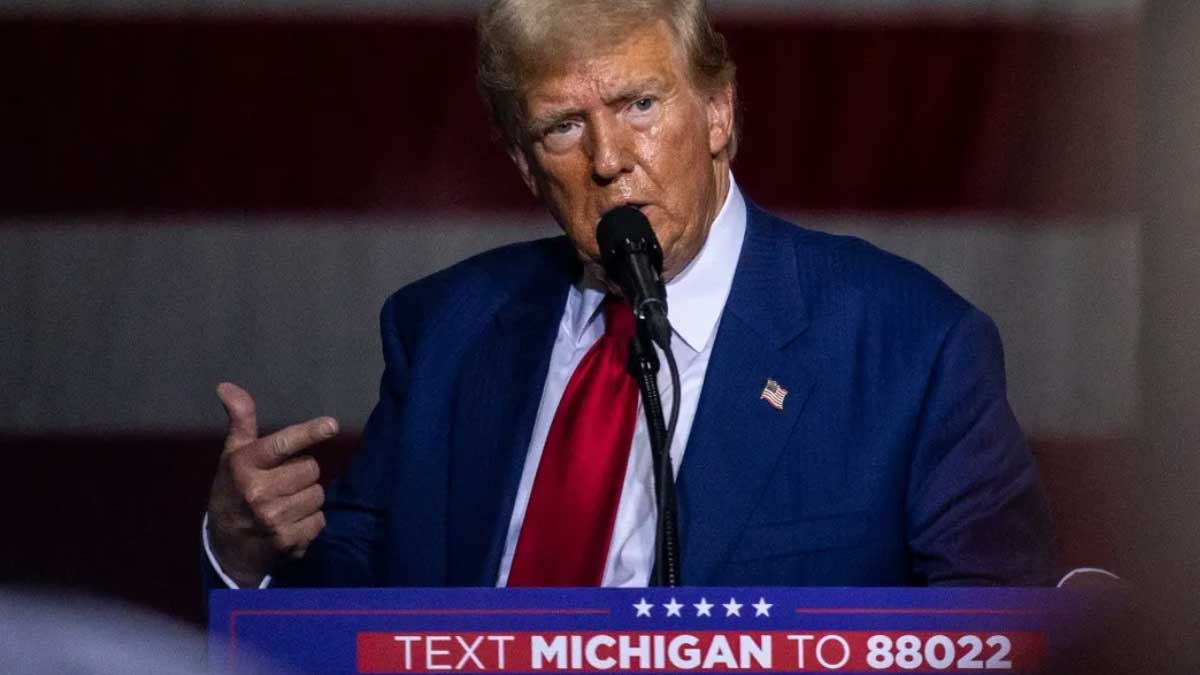- Home
- Billionaires
- Investing Newsletters
- 193CC 1000
- Article Layout 2
- Article Layout 3
- Article Layout 4
- Article Layout 5
- Article Layout 6
- Article Layout 7
- Article Layout 8
- Article Layout 9
- Article Layout 10
- Article Layout 11
- Article Layout 12
- Article Layout 13
- Article Layout 14
- Article Sidebar
- Post Format
- pages
- Archive Layouts
- Post Gallery
- Post Video Background
- Post Review
- Sponsored Post
- Leadership
- Business
- Money
- Small Business
- Innovation
- Shop
Recent Posts
Trump Backs Florida Marijuana Legalization Measure

Former President Donald Trump has made headlines with his recent declaration that he will vote in favor of Amendment 3, a ballot measure aimed at legalizing recreational marijuana use in Florida. This announcement, made on his Truth Social platform, signifies a notable departure from the stance held by current Florida Governor Ron DeSantis and other prominent Republican figures in the state. Trump’s endorsement of Amendment 3 introduces a new layer to the ongoing debate over marijuana legalization, highlighting a divide within the Republican Party and raising questions about future policy directions.
In his statement, Trump expressed his clear support for the ballot measure, stating unequivocally that he will cast a “YES” vote in November. His rationale for backing Amendment 3 centers on a call to end what he describes as the “needless arrests and incarcerations of adults for small amounts of marijuana for personal use.” This perspective underscores a growing sentiment among some political leaders and advocates who argue that criminalizing minor marijuana offenses is an inefficient use of resources and unjustly penalizes individuals for personal choices. By aligning himself with this viewpoint, Trump is positioning himself as a proponent of criminal justice reform, a stance that contrasts with traditional Republican positions on drug policy.
Trump’s support for Amendment 3 is not entirely new, as he had previously hinted at backing the measure. However, his recent explicit endorsement marks a significant moment in the debate, offering a clearer indication of his stance on the issue. Alongside his support for the measure, Trump outlined a broader vision for his administration if he were to win in the upcoming election. He pledged that his administration would prioritize research into the medical uses of marijuana, reflecting an interest in exploring potential therapeutic benefits of the drug. This commitment suggests a shift towards a more progressive approach to cannabis policy, one that focuses on scientific inquiry and potential health benefits rather than solely on criminal justice concerns.
The contrast between Trump’s position and that of Florida’s current Republican leadership is stark. Governor Ron DeSantis, a key figure in the state’s Republican establishment, has been a vocal critic of Amendment 3. In April, DeSantis launched a strong critique of the measure, asserting that it does more than simply decriminalize marijuana—it essentially legalizes its use in any location, a position he vehemently opposes. DeSantis has warned that if the measure passes, Florida cities and towns could face increased marijuana use in public spaces, potentially altering the character of communities across the state. This concern about the public impact of marijuana legalization reflects a broader debate about the social and environmental effects of cannabis policy changes.
Opposition to Amendment 3 has also been fueled by significant financial contributions from wealthy Republican donors. Ken Griffin, a billionaire and prominent supporter of DeSantis, has invested $12 million into efforts to defeat the measure. Griffin’s financial backing underscores the high stakes involved in the debate over marijuana legalization, with substantial resources being mobilized to influence the outcome. Opponents like Griffin argue that Amendment 3 serves the interests of a few and could lead to an increase in crime, a point of contention that has added to the complexity of the debate.
Trump’s vocal support for Amendment 3 has not been without controversy within Republican circles. Some Florida Republicans have expressed strong opposition to his stance. David Biddle, the GOP Chair of Gilchrist County, has publicly urged voters to reject the measure, criticizing Trump’s position and framing it as misaligned with Republican values. This internal Republican discord highlights the broader ideological divide within the party regarding marijuana policy, with some members embracing reform and others resisting change.
In addition to his support for the ballot measure, Trump has suggested that, if Amendment 3 is enacted, the state legislature should establish laws to regulate marijuana use in public places. This proposal appears to be a strategic response to concerns raised by opponents of the measure, who argue that unregulated marijuana use could become a pervasive issue in public areas. Trump’s suggestion reflects an attempt to address these concerns while still supporting the overall goal of legalization.
Governor DeSantis has countered that while Amendment 3 would permit the regulation of medical marijuana use in public, it does not extend the same provisions to recreational use. This distinction highlights the ongoing debate over how different types of marijuana use should be regulated and the potential implications for public policy and community standards.
The passage of Amendment 3 hinges on securing 60% of the vote, a high threshold that underscores the contentious nature of the issue. As the election approaches, both proponents and opponents of the measure are expected to intensify their efforts to sway public opinion. Trump’s endorsement adds a new dynamic to the debate, potentially influencing the perspectives of voters and shaping the broader conversation about marijuana policy.
In summary, Trump’s support for Florida’s recreational marijuana legalization measure marks a significant shift in the political landscape, introducing a new layer of complexity to the debate over cannabis policy. His endorsement and commitment to exploring marijuana’s medical uses reflect a broader trend towards reevaluating drug policies. As Florida voters prepare to make their decision, the outcome of Amendment 3 will be closely watched as a potential indicator of evolving attitudes towards marijuana legalization and its implications for future policy changes.
Recent Posts
Categories
- 193 Countries Consortium Partner1
- 193cc Digital Assets2
- 5G1
- Aerospace & Defense48
- AI37
- Arts3
- Banking & Insurance11
- Big Data3
- Billionaires1,467
- Boats & Planes1
- Business332
- Careers13
- Cars & Bikes79
- CEO Network1
- CFO Network17
- CHRO Network1
- CIO Network1
- Cloud10
- CMO Network18
- Commercial Real Estate7
- Consultant1
- Consumer Tech194
- CxO1
- Cybersecurity73
- Dining1
- Diversity, Equity & Inclusion4
- Education7
- Energy8
- Enterprise Tech29
- Events11
- Fintech1
- Food & Drink2
- Franchises1
- Freelance1
- Future Of Work2
- Games149
- GIG1
- Healthcare79
- Hollywood & Entertainment203
- Houses1
- India’s 1000 Richest1
- Innovation46
- Investing2
- Investing Newsletters4
- Leadership65
- Lifestyle11
- Manufacturing1
- Markets20
- Media327
- Mobile phone1
- Money13
- Personal Finance2
- Policy569
- Real Estate1
- Research6
- Retail1
- Retirement1
- Small Business1
- SportsMoney42
- Style & Beauty1
- Success Income1
- Taxes2
- Travel10
- Uncategorized14
- Vices1
- Watches & Jewelry2
- world's billionaires1,436
- Worlds Richest Self-Made Women2
Related Articles
South Korea Plane Crash: A Tragic Loss and Global Mourning
The tragic plane crash at South Korea’s Muan International Airport on Sunday...
By 193cc Agency CouncilDecember 30, 2024H-1B Visa Debate Splits Trump Allies and Silicon Valley
The debate over H-1B visas has once again become a contentious issue,...
By 193cc Agency CouncilDecember 28, 2024Trump Moves $4B Stake in Truth Social Parent, Stock Drops 6%
Donald Trump recently transferred his 57% stake in Trump Media & Technology...
By 193cc Agency CouncilDecember 20, 2024House Rejects Trump-Backed Funding Bill, Shutdown Looms
The U.S. House of Representatives rejected a new government funding bill on...
By 193cc Agency CouncilDecember 20, 2024















Leave a comment